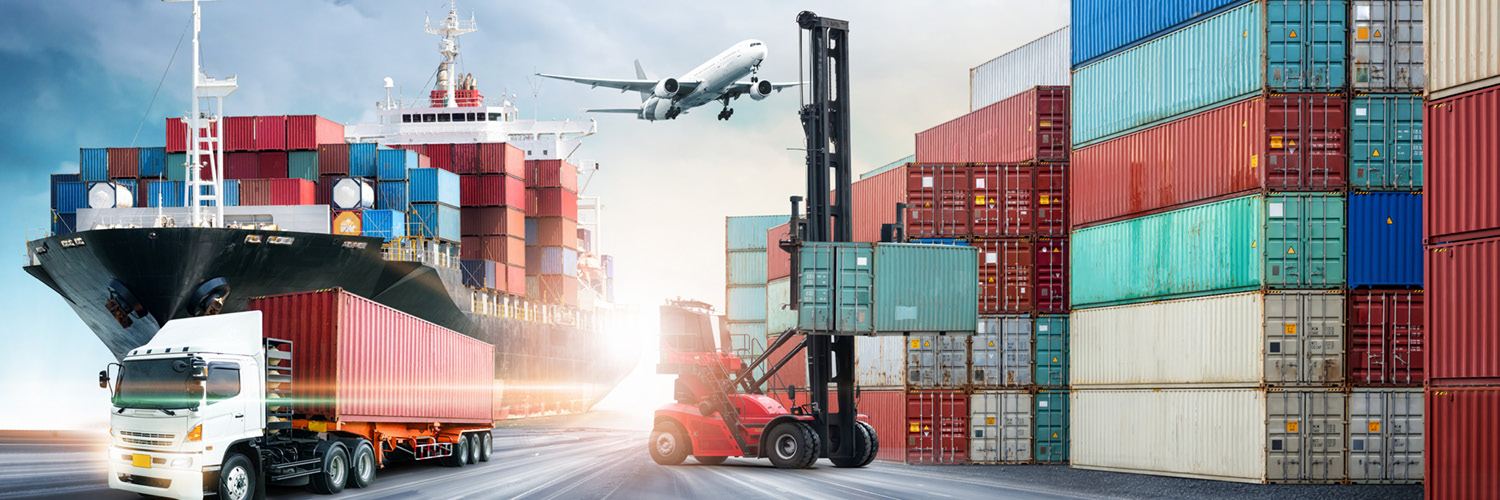
Transportation Disruptions Affect U.S. Healthcare
Shipping challenges and transportation delays are hampering the U.S. supply chain COVID-19 response, causing disruptions that are negatively affecting the nation’s healthcare. Prioritizing critical medical products throughout the nation’s transportation system could help healthcare providers get the critical products they need for patient care.

Shipping Challenges Persist
Shipping bottlenecks have persisted deep into 2021 and are expected to slide into 2022, delaying delivery of medical supplies to healthcare providers. Ports, railways, and the trucking industry are all suffering from worker shortages, logistics logjams, and other issues. The congestion began in earnest in the fourth quarter of 2020, a symptom of the COVID-19 pandemic. More consumers increased their online shopping as they hunkered down to avoid COVID. But workforces also were depleted as transportation sector employees fell ill to the coronavirus or stayed home to care for loved ones.
Along with the holiday shopping season, the fourth quarter of the year is also the beginning of “cough and cold season.” In some regions of the country, the season is ramping up early. In August, Georgia and New Mexico already were experiencing high levels of flu, according to the Centers for Disease Control and Prevention’s Flu Tracker. That means increasing demand for PPE and ancillary flu vaccine products, as well as for medical supplies essential for healthcare. The nation’s current transportation woes are intensifying the supply and demand strain. Healthcare providers need to know how much product they are receiving and when to ensure appropriate, clinical patient care. Snarled ports, delayed deliveries, the surging COVID Delta variant, and uncertainty
over when products will arrive are stressing the system.

HIDA And Its Members Offer Solutions

Matthew J. Rowan
HIDA
“Transportation disruptions have become a healthcare issue.”
In a letter to the White House Supply Chain Disruptions Task Force, HIDA President & CEO Matthew J. Rowan discussed solutions to transportation delays hampering the supply chain’s COVID-19 response. “It is critical that a process to prioritize important medical supplies be identified,” he wrote, adding that rising COVID-19 cases combined with the upcoming flu season could further strain the transportation system.
HIDA also shared its Critical Cargo Position Statement with the U.S. Federal Maritime Commission to highlight the critical nature of the situation. HIDA supports prioritizing container access and sea freight space for essential medical products. The process should address the entire U.S. transportation system from ports to rail to trucks to small parcel carriers so products are moved efficiently. To read the full statement, visit HIDA.org.
HIDA’s Shipping Workgroup, comprised of member-company transportation and logistics leaders, has been meeting regularly to identify pain points and share best practices with each other as well as with HIDA’s federal partners. They work together to find possible solutions to the shipping dilemma, which is holding up critical medical supplies from healthcare providers who need it for patient care.
The White House has appointed John Porcari as “port envoy” to address the nation’s transportation bottlenecks. He is part of the Supply Chain Disruptions Taskforce, which was created in June. Among his duties, he is working with the Transportation Department and the National Economic Council to address the national transportation challenges. HIDA VP of Supply Chain Policy & Executive Branch Relations Linda Rouse O’Neill has spoken with Porcari about the importance of moving medical products quickly and efficiently through the transportation system.

This article appears in the November-December 2021 issue of HIDA’s bimonthly member magazine, Healthcare Distribution & Supply Chain™.